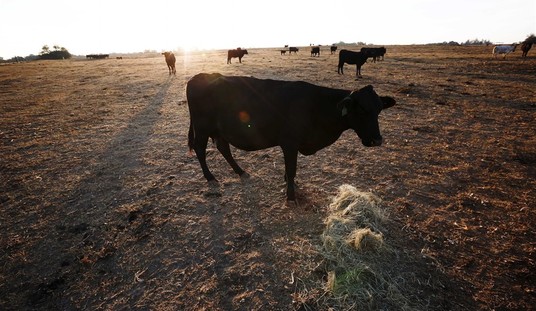Here’s a riddle for you. What do Donald Trump and Alexandria Ocasio-Cortez have in common? The answer is that they’ve both been sued by people that they blocked on Twitter. The difference between them is that the President is still fighting his accuser. AOC, on the other hand, has folded her hand, apologized, and promised to stop blocking (some) people. (Washington Times)
Rep. Alexandria Ocasio Cortez settled a lawsuit brought by a former Brooklyn lawmaker after blocking him from her Twitter account where she has nearly six million followers, according to multiple reports.
Dov Hikind, a former state Assemblyman, criticized the millennial socialist after she compared migrant detention centers to concentration camps. As a result, Ms. Ocasio-Cortez blocked him on Twitter…
Ms. Ocasio-Cortez issued an apology in accordance with the settlement, testifying in court last week, according to the New York Post.
“I have reconsidered my decision to block Dov Hikind from my Twitter account,” Ms. Ocasio-Cortez said. “Mr. Hikind has a First Amendment right to express his views and should not be blocked for them.”
So AOC meekly apologized and left the battlefield. Fair enough. It’s her choice and perhaps her legal team (or political team) advised her to do so.
Here’s one of my main problems with this entire debate. Both the President and AOC seem to have run into a wall, saying that their use of a privately-owned social media network is subject to the dictates of the courts based on the free speech rights of other users. This seems to be a patently ridiculous proposition, but it’s now building a body of precedent in court decisions.
The user in question in the AOC case (and the Trump case as well) is still on Twitter. They are still free to “speak” whenever they want. Both AOC and the President are still on Twitter. They are also “speaking” as they wish. Anything either of these elected officials tweet is immediately picked up and broadcast across countless channels. All that “blocking” does on Twitter is the prevention of trolls from pounding your mentions column. And it’s not a case of “the government” hindering anyone’s free speech anyway. Twitter is a private company.
Stop and think about this for a moment. If blocking someone as an elected official violates their free speech rights in a forum owned and operated by a private company, how is the blocking of anyone by anyone else not a violation of said rights? Kicking certain news outlets out of official government press conferences might (and I emphasize might) be considered a way of blocking the public’s access to official government information distribution.
Twitter is not a newspaper or a television news station. Once again, it’s a private chat network where you are allowed to choose who you follow and what you hear. You are similarly allowed to choose who you don’t want to hear. Treating anyone differently based on the fact that they are an elected official creates different classes of rights and citizenship. And it further embeds Twitter (a private company) in the collective consciousness as some sort of utility. It’s an internet chat program.
This ruling is crazy. And AOC is even crazier for going along with it. I would say the same about the President if he just folded on this. And it sets us on a very dark path in terms of keeping a wall of separation between the government and the private sector. There are any number of liberal activists and journalists who have blocked me on Twitter. Do I get to sue them now? Because I’m looking at a retirement location with some good fly fishing and I could definitely use the cash.








Join the conversation as a VIP Member